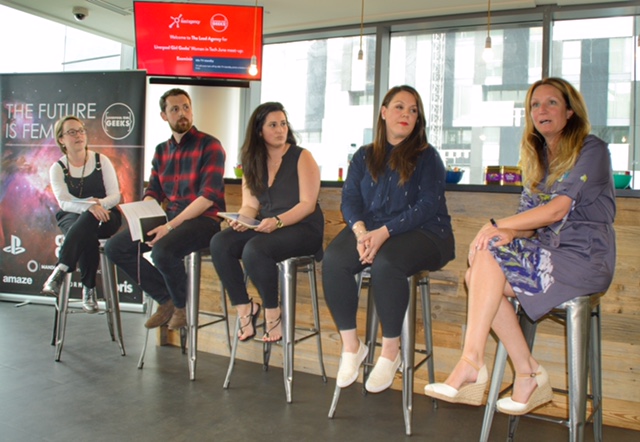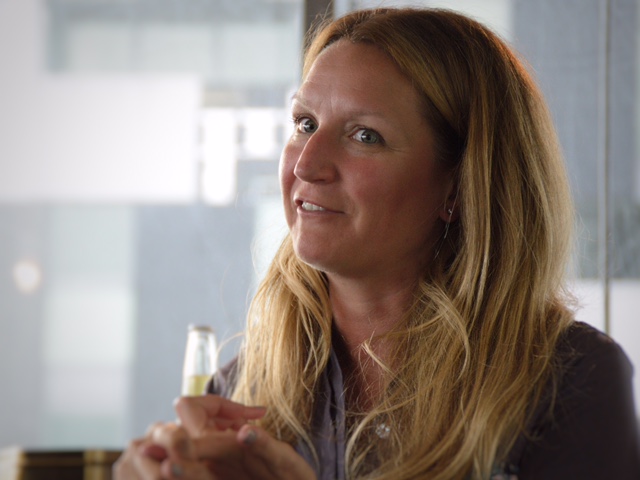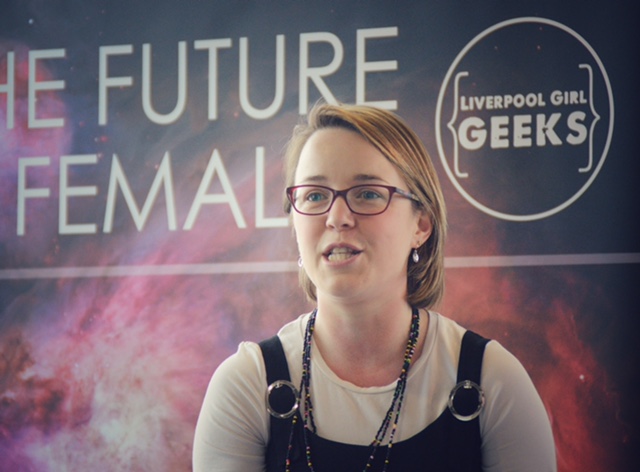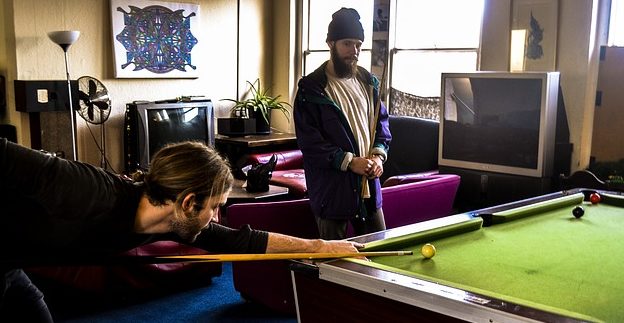Is the tech and digital sector’s ‘bro culture’ of beer fridges and pool tables pushing women away?
Liverpool Girl Geeks brings together an expert panel in Liverpool city centre to discuss whether the booming digital sector needs to do more to attract and retain talented women. Tony McDonough reports

Beards, beer fridges and pool tables have become synonymous with the digital and tech sector.
Its an image that reinforces the perception that so-called ‘bro culture’ has emerged from the male-dominated spiritual home of digital – Silicon Valley – and is now endemic in businesses across the world, including here in the UK.
The issue gained greater prominence earlier this year thanks to a blog post by Susan Fowler, a former engineer at Uber who claimed her complaints about sexual harassment and discrimination were dismissed in what was a testosterone-fuelled working environment.
Panel discussion
Bro culture was the topic of a panel discussion in Liverpool this week, organised by Liverpool Girl Geeks.
The social enterprise was established to encourage more girls to consider a career in digital and tech, a fast-growing sector where women remain woefully under-represented.
Held at the offices, and in partnership with, The Lead Agency at its office in 20 Chapel Street, the panel included representatives from two members of Liverpool & Sefton Chamber of Commerce – Leyla McParlin, an account manager at Mando, and Deborah Chapman, head of reward, pensions and diversity at Shop Direct.
It also included Girl Geeks director, Jo Morfee, Keith Price, brand manager at The Lead Agency, and Jane Fitzmaurice, resource partner at Autotrader.
Cultural norms
Kicking off the the session, Jo Morfee said: “When someone joins a company or organisation for the first time they are subconsciously inducted into the group and are taught their cultural norms.
“What the Susan Fowler blog showed was that in a dysfunctional culture people will just end up leaving. The number of women in Uber fell from 25% to just 3%.”
Leyla McParlin agreed, adding: “People feeling they can open and free from fear is what drives a healthy culture.
“That has to be driven from the top of the organisation down. You can see how executives operate by the way they deal with junior members of staff.

“Our MD at Mando, Ian Finch, sits with us in the office and treats everyone the same and we can talk to him about anything we like.
“Like so many businesses, we are results-driven and it is that kind of healthy culture that drives performance.”
Right mindset
Deborah Chapman said Shop Direct, the former Littlewoods empire, had undergone huge change in recent years, transforming itself from a traditional catalogue business into a multichannel digital retailer.
This, she said, had gone hand in hand with a major cultural change within the organisation.
She explained: “Even if you don’t have the quotas in terms of gender you can offset that by having the right mindset.

“One of the things we are talking about now that we weren’t talking about a year ago is wellbeing.
“Changing culture requires a big action plan and all the leaders in the organisation have to be prepared to take it seriously.
“And the values and the direction of the change comes from the people in the business.”
‘Live the change’
Jane Fitzmaurice agreed that those most senior have to “live the change” and really get behind it if they want employees to go along with it.
“At Autotrader we have a diversity of thought,” she said. “Changes to a culture cannot happen overnight and people have to be allowed to adapt to it in their own time.
“We always ask people ‘are you feeling included?’.”
Despite the healthy working cultures that exist in their own organisations that panel agreed that across the tech industry there was an issue around bro culture and inclusivity.
Pipeline needed
Deborah said the the issue goes as far back as primary schools where not enough girls were being being encouraged to go down a tech or digital route.
“If we are to address the number of women in the industry we need to have a pipeline of people coming through,” she said.
“Even if we can create that pipeline it is going to take 10 or 20 years before you have a real culture change.”

Jo added that it was also vital the public and media perceptions of the tech industry were challenged.
She said: “I’m not sure careers advice has changed enough since I was at school. There is a need to tackle the gender stereotypes.
“We went into a school recently and found that 90% of the girls were not studying tech subjects or even being told about tech opportunities.
Ongoing process
“In terms of the culture of a business women will vote with their feet. If there is not a healthy culture then they will eventually just leave.”
Leyla agreed and said the process of change had to be ongoing. She talked about the importance of mentoring and being able to have someone to talk to and raise issues with without a fear of the consequences.
“It has to be real and go beyond just having a poster on the wall.”

